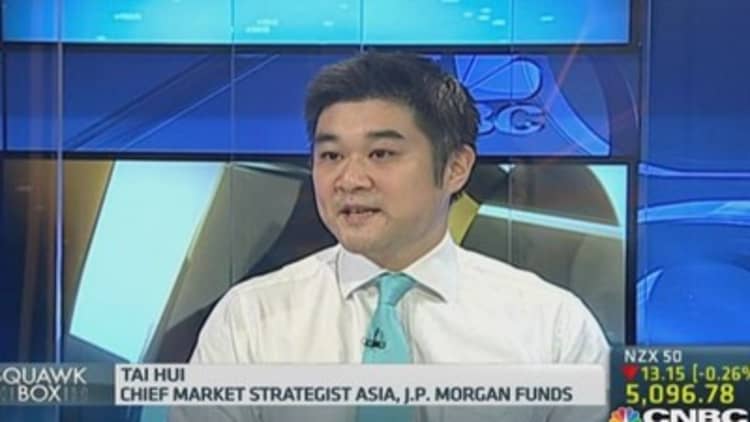China's offshore bond market looks to be booming with record issuance and strong demand, but rather than the global market that was hoped for it has been a speculative play on the yuan dominated by Chinese issuers and investors.
The "dim sum" bond market has been largely shunned by big U.S. and European institutional investors, and worries about the lack of information on issuers, debt structures and rights in case of a default mean that is unlikely to change soon.
Despite record half-yearly issuance of 359 billion yuan ($58 billion) in the first six months of 2014, the perception that it is an insider's market has hampered its global development and intended role in helping internationalize the yuan.
"You've got to be a fairly specialist investor to be interested in these bonds if you are in Europe because a lot of issuers are below investment grade, an area we wouldn't seek to invest in," said Andrew Main, a managing director at London-based Stratton Street with assets of $1.55 billion at end May.
Read MoreAsia stocks decline on China data, central bank decisionsawaited
A slowdown in the economy and volatility in the yuan has tempered enthusiasm for Chinese debt among foreigners. And with Beijing starting to allow companies to default on debts instead of bailing them out, as part of its push to introduce more market discipline, investors have to better assess their risks.
Year-to-date U.S. dollar returns are negative for an index of dim sum bonds compiled by HSBC, compared to a 6.8 percent rise in 2013. In comparison, a similar index measuring returns for Asian companies selling U.S. dollar debt returned 6.6 percent compared to minus 2.4 percent in 2013.
Credit ratings
A fund manager in Hong Kong attended an investment forum in London, but found very few investors involved in the dim sum market due to the difficulty in doing fundamental analysis on Chinese issuers.
"Some asset managers in Europe try to avoid buying yuan bonds after so many negative new headlines about China," the fund manager said on condition of anonymity as he wasn't authorized to speak to the media.

While the dim sum market traces its roots back to 2007, it was only in July 2010 after a landmark agreement between China and Hong Kong's central banks encouraging offshore yuan bond issuance from foreign companies and relaxing investment restrictions that the market really took off.
McDonald's and Hopewell Highway Infrastructure were the first foreign issuers, but four years on locals dominate. About 90 percent of dim sum debt this year has come from Chinese and HK issuers.
The nature of the market was highlighted by a dim sum issue by Beijing Infrastructure Investment, the first issue by one of China's local government financing vehicles, the opaque entities that are a major part of China's gigantic debt problem.
The company sold a 1.2 billion yuan three-year dim sum bond at 3.75 percent, a rate that would make blue-chip companies jealous. More than 90 percent of the issue was taken up by investors in Hong Kong and Singapore.
Read MoreHong Kong to launch gateway to China stock market
The issue was rated A minus by Standard & Poor's, but unrated debt, including certificates of deposits, comprises about 80 percent of the dim sum market, according to Thomson Reuters data.
In comparison, the vast majority of debt issues sold in the global debt markets in dollars, euros or are rated.
That lack of credit ratings makes it hard for money managers to separate the quality issues from the trickier names, curtailing their involvement in the market.
"New investors prefer to buy government bonds as what they need to know is just China's macro conditions; while for credit bonds, not many institutions out of the region are willing to allocate resources and analysts to do research," said Becky Liu, a strategist at Standard Chartered Bank in Hong Kong.

